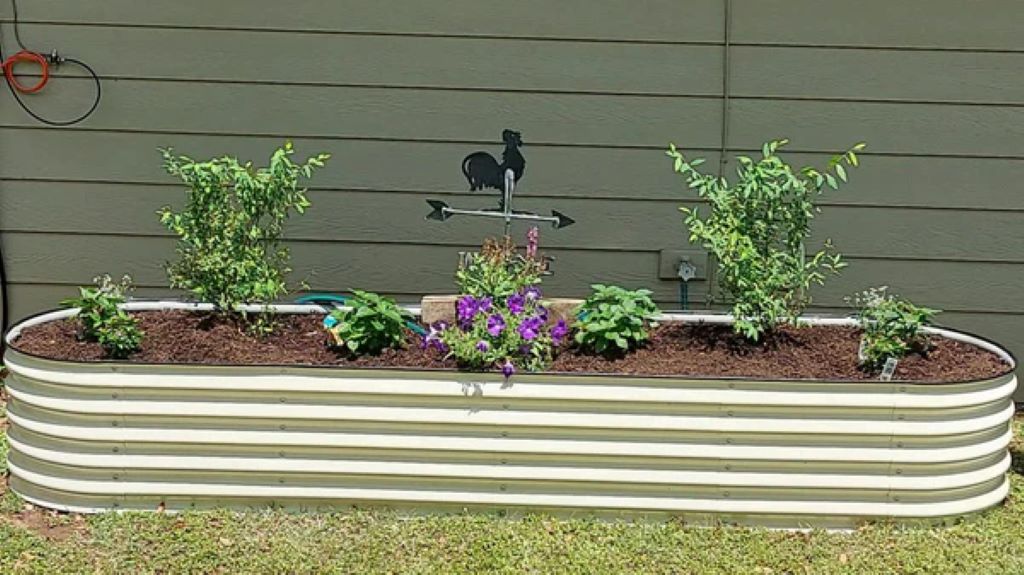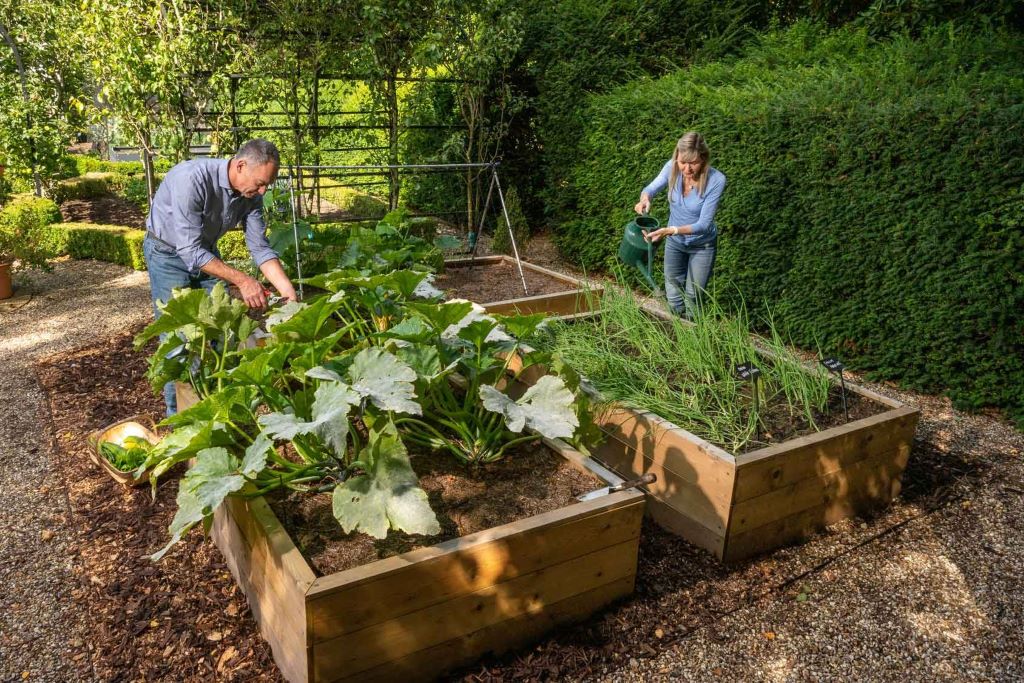For aspiring and seasoned gardeners alike, raised beds offer a unique and rewarding way to cultivate a thriving patch of paradise. They’re not just about aesthetics (although a well-designed raised bed can definitely elevate your outdoor space); they come packed with advantages that can benefit both your plants and your gardening experience.
So, why should you consider building raised beds? Let’s delve into the top 10 reasons:
-
Soil Superstar:
Traditional in-ground gardens can suffer from poor soil quality, ridden with compacted earth, weeds, or even contamination. Raised beds allow you complete control over the growing medium. Fill them with a premium blend of topsoil, compost, and organic matter, creating a loose, fertile haven for optimal root growth and nutrient uptake. Dr. Linda Chalker-Scott, a leading soil scientist, emphasizes the importance of healthy soil for plant health, stating, “Plants are not simply passive recipients of nutrients; they actively partner with soil microbes to acquire what they need”.
-
Back-Friendly Bliss:
Gone are the days of hunching over rows! Raised beds, typically knee- to waist-height, eliminate the need for excessive bending and straining, making gardening a more comfortable and accessible activity for people of all ages and abilities. This ergonomic benefit is particularly significant for those with pre-existing back problems.
-
Weed Warrior:
Weeds can be a persistent nemesis for any gardener. Raised beds act as a physical barrier, significantly reducing weed intrusion from surrounding soil. This translates to less time spent weeding and more time enjoying the fruits (or vegetables) of your labor!

-
Drainage Dynasty:
Proper drainage is fundamental for healthy plant growth. Raised beds, with their elevated position and often well-draining base materials, prevent waterlogging, a common problem in traditional gardens with poor drainage. This is especially crucial for plants susceptible to root rot.
-
Sun Seeking Savvy:
Not all gardens are blessed with abundant sunshine. Raised beds offer the flexibility to be positioned for maximum sun exposure, ensuring your light-loving plants get the perfect amount of sunshine to thrive. This is particularly advantageous if your yard has limited sunlight due to buildings or shade trees.
-
Space Saver Supreme:
Think raised beds are just for sprawling gardens? Think again! Even small balconies or patios can become thriving oases with strategically placed raised beds. They allow you to maximize limited space and grow a surprising amount of food or flowers.
-
Season Extension:
The elevated nature of raised beds allows the soil to warm up faster in spring and retain heat better, extending your growing season. This benefit is a boon for gardeners in regions with shorter seasons, enabling them to cultivate a wider variety of plants or enjoy earlier harvests.
-
Customization King:
Raised beds come in all shapes, sizes, and materials. From classic wooden structures to innovative recycled materials like tires or cinder blocks, you can personalize your raised beds to suit your aesthetic preferences, space constraints, and budget.
-
Composting Companion:
Raised beds integrate beautifully with composting practices. Kitchen scraps and yard waste can be composted directly in a designated section of the raised bed, creating a closed-loop system that nourishes your plants while reducing waste.
-
Fresh Food Fanatic:
There’s nothing quite like savoring the taste of homegrown vegetables or herbs. Raised beds, with their ideal growing conditions, often produce higher yields of tastier, more nutritious food compared to traditional gardens. Knowing exactly what’s gone into your food (and the satisfaction of growing it yourself) is a bonus that can’t be replicated at the grocery store.
Raised bed gardening isn’t just a trend; it’s a smart and rewarding approach to cultivating a thriving green haven. So, grab your tools, unleash your creativity, and get ready to reap the benefits of this versatile gardening method!
Bonus Tip: Consider incorporating companion planting techniques in your raised beds. Planting certain herbs or flowers alongside your vegetables can deter pests naturally and promote pollination.
Remember: Researching your local planting zone and choosing suitable vegetables, herbs, or flowers will ensure your raised bed thrives. Happy gardening!






